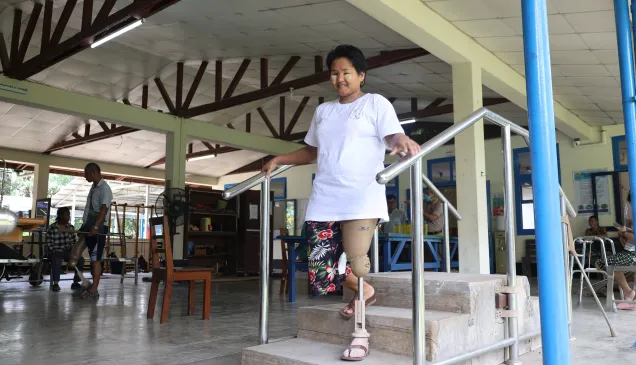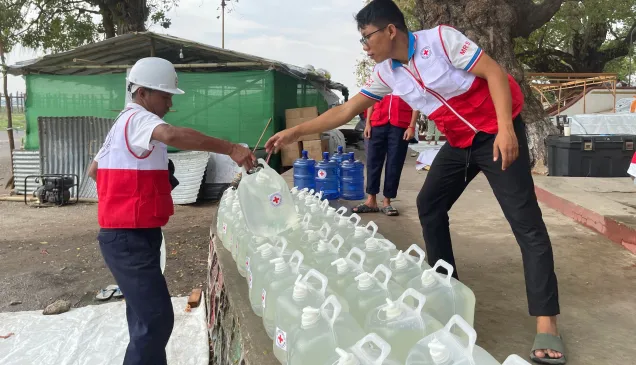Myanmar: Living with the rising risk of landmines and other explosive devices
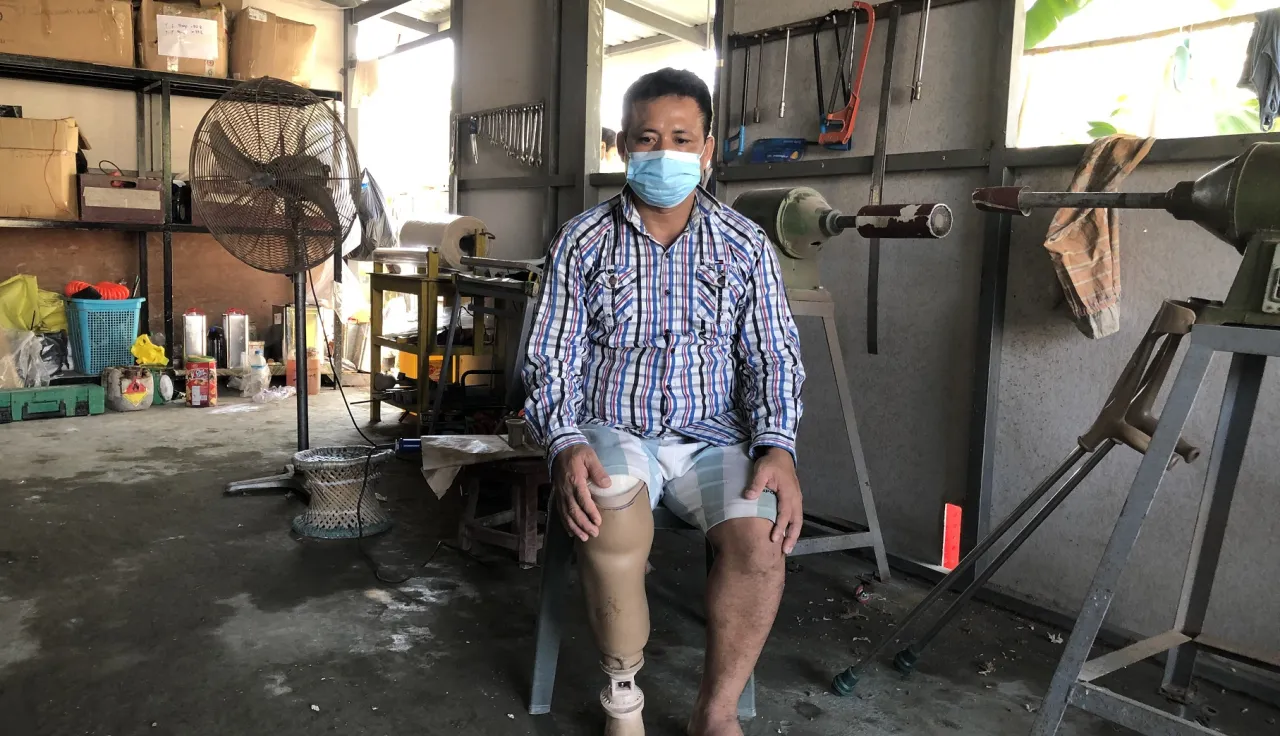
In Myanmar, landmines and other explosive remnants of war shatter lives. Hundreds of people are killed or injured every year. Last year, we supported 160 people affected by incidents involving landmines and other explosive ordinances. With Myanmar in ongoing crisis, the risks continue to rise. Even after the fighting, explosive remnants of war remain – continuing to endanger lives.
U Maung Thein Htay from Rakhine State's Ann Township is one of the many civilians whose life was disrupted by a landmine injury. Early in 2021, he was on his way to gather raw material to make traditional handmade hats and fans. He wasn't far from the highway when he stepped on something and heard a deafening blast.
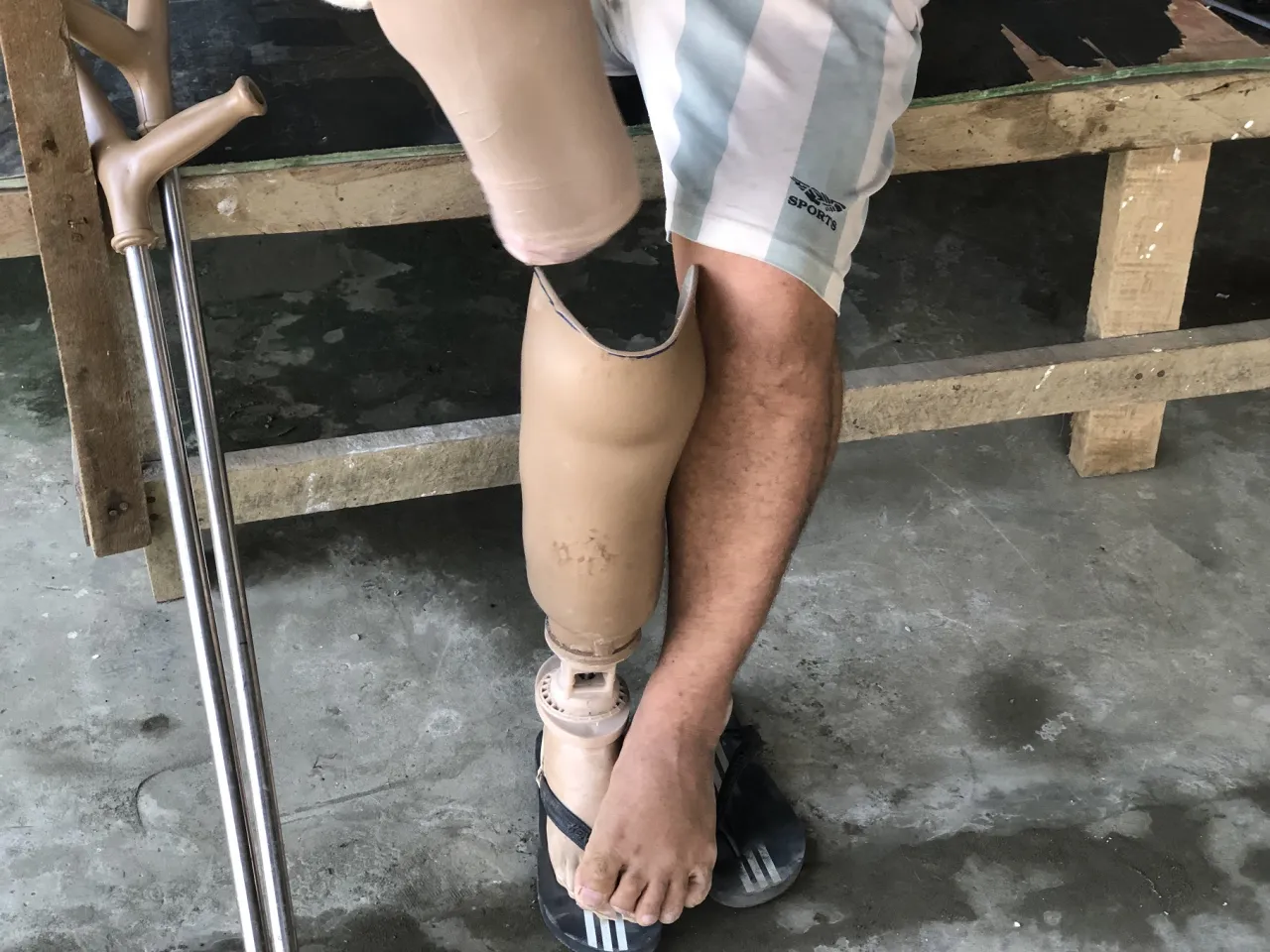
He received a prosthetic leg and underwent physiotherapy at the ICRC’s Sittwe physical rehabilitation workshop in October 2021. Oo Than Tin/ICRC
"The place was covered with leaves, so I didn't spot anything out of ordinary on the ground. Also, I had never seen explosive devices in my life to be able to identify them," he said. U Maung Thein Htay was rushed to Kan Htaung Gyi Hospital in Myaebon Township and was later transferred to Sittwe General Hospital for further treatment. That's where the International Committee of the Red Cross (ICRC) team first met him while assessing the best form of support that could be given to victims of landmine accidents.
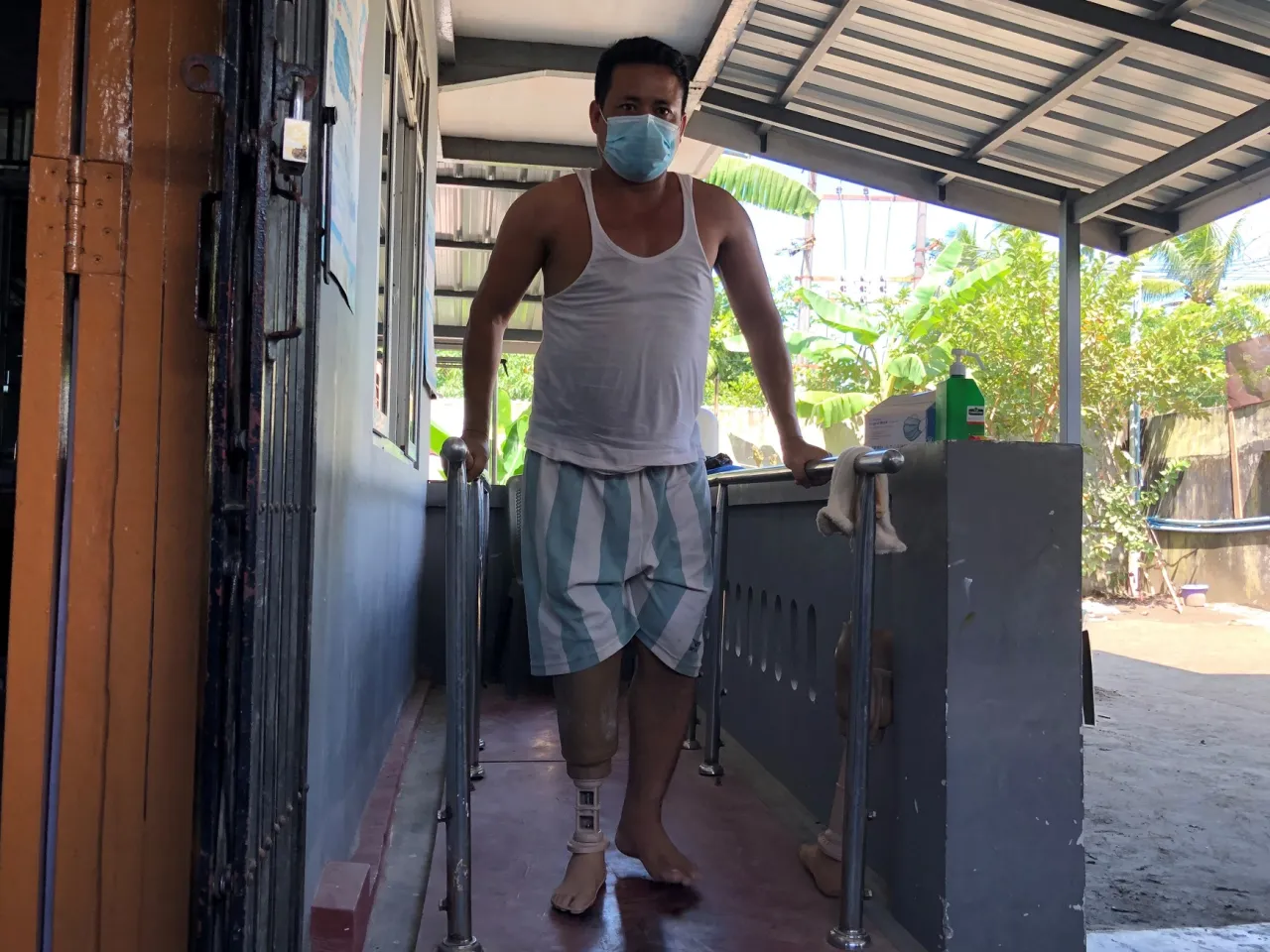
U Maung Thein Htay is hopeful of starting a small grocery store to support his family. Oo Than Tin/ICRC
"I was devastated at losing my leg and I worried that I wouldn't be able to make enough money to feed my family," U Maung Thein Htay said. As a father of three children and the breadwinner of the family, he felt depressed sitting at home all day, relying entirely on his wife and children to even get about the house for his own needs.
In October 2021, U Maung Thein Htay arrived at the ICRC's Sittwe physical rehabilitation workshop to get new prosthesis fitted and undergo physiotherapy. ''Now that I've got my prosthetic leg, I feel like my old self again. It feels like I lost my leg, then got it back. I'll be able to work again and provide for my family," he said with a smile. Thinking of the future, U Maung Thein Htay said he would like to open a small grocery store at his home in Ann Township. "I hope it will cover some of the daily expenses of my family," he added.
"I was devastated at losing my leg and I worried that I wouldn't be able to make enough money to feed my family" - U Maung Thein Htay
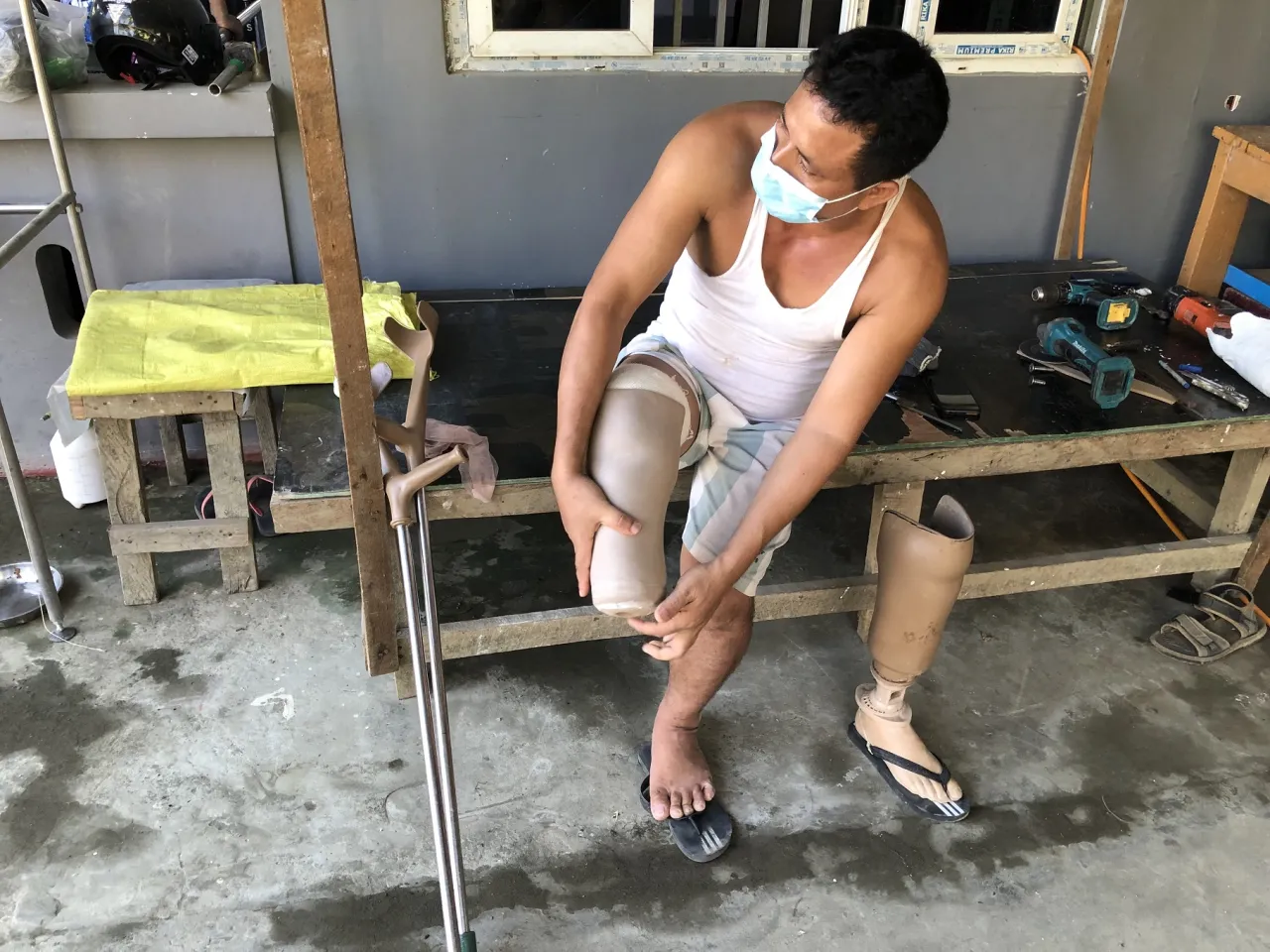
“Now that I’ve got my prosthetic leg, I feel like my old self again,” says U Maung Thein Htay. Oo Than Tin/ICRC
To strengthen rehabilitation services in Rakhine State, the ICRC partners with The Leprosy Mission Myanmar (TLMM) and provides mobile prosthetic-orthotic services particularly to those living with physical disabilities, the elderly, pregnant women and children in communities displaced by armed conflict. These services include counselling, medical referrals and support for those in need of prosthesis, mobility aids and wheelchairs.


